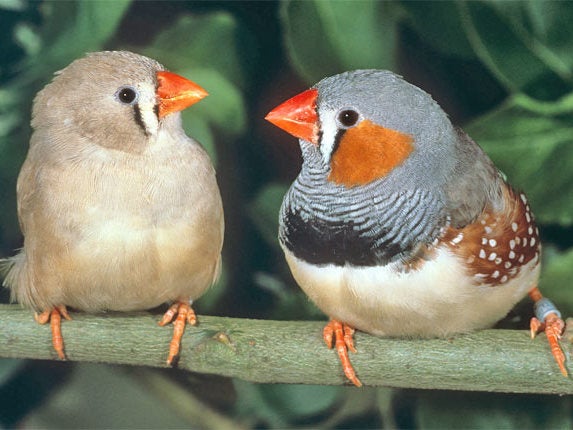The bird that may explain why people are unfaithful

Your support helps us to tell the story
From reproductive rights to climate change to Big Tech, The Independent is on the ground when the story is developing. Whether it's investigating the financials of Elon Musk's pro-Trump PAC or producing our latest documentary, 'The A Word', which shines a light on the American women fighting for reproductive rights, we know how important it is to parse out the facts from the messaging.
At such a critical moment in US history, we need reporters on the ground. Your donation allows us to keep sending journalists to speak to both sides of the story.
The Independent is trusted by Americans across the entire political spectrum. And unlike many other quality news outlets, we choose not to lock Americans out of our reporting and analysis with paywalls. We believe quality journalism should be available to everyone, paid for by those who can afford it.
Your support makes all the difference.It may not work for Ryan Giggs but as a get-out clause for philandering finches it is just about perfect: I can't help cheating, it's in my genes.
Scientists studying the sexual behaviour of zebra finches have discovered that promiscuity is passed down through generations, providing an insight into how an animal's genetic make-up may influence its willingness to take multiple partners.
Like mourning doves and swans, zebra finches generally form lifelong relationships with a single partner. But small numbers of males and females indulge in frequent extramarital sex.
Such behaviour among monogamous species has often puzzled ornithologists. While the benefits of cheating for the males is clear – offering them an opportunity to spread their genes further than fidelity would permit – females who play away run considerable risks, including the loss of their lifelong partner and a greater vulnerability to sexual diseases.
A new study by German scientists now suggests that cheating among finches may be genetic, with the female offspring of philandering finches much more likely to cheat than their monogamous counterparts.
Researchers at the Max Planck Institute for Ornithology in Seewiesen spent eight years recording the sexual behaviour of a captive population of more than 1,500 finches over five generations. The behaviour was documented on video and then genetic paternity tests were used to determine which finches had sired the most offspring. Unsurprisingly, finches that chose multiple partners tended to sire the largest number of offspring. But their female offspring were also much more likely to cheat.
Wolfgang Forstmeier, one of the study's lead researchers, believes the results highlight how genetic make-up plays a crucial role in dictating sexual-behaviour traits and even passes between the sexes. The study is published in the Proceedings of the National Academy of Sciences of the United States of America.
Join our commenting forum
Join thought-provoking conversations, follow other Independent readers and see their replies
Comments